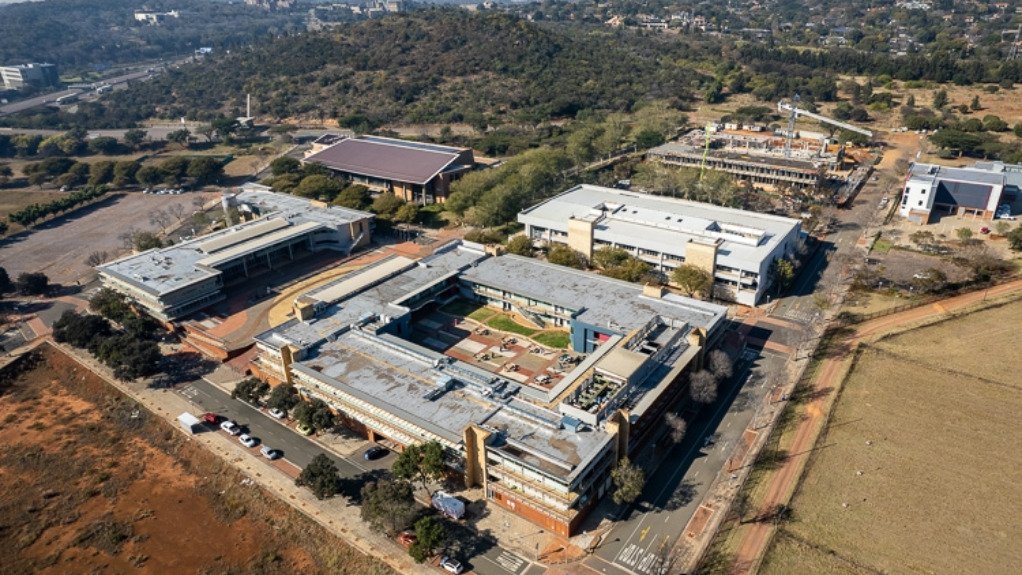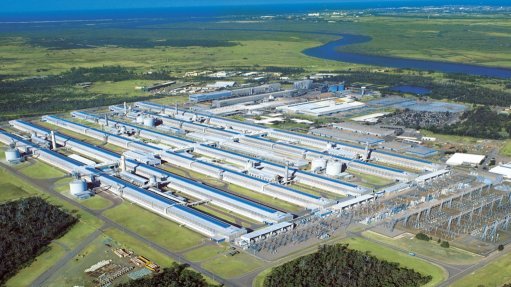Innovation agency of Gauteng province pushes AI inclusivity


COMPETITIVE EDGE To remain competitive, Africa must address existing and emerging challenges, such as infrastructure limitations, cost concerns, skills and the digital divide, which create disparities in access to AI technologies and their benefits
Photo by The innovation hub
AI is set to play a crucial role in improving efficiency and turnaround times, and in addressing key challenges in sectors such as healthcare and agriculture, particularly in underserved areas.
However, to ensure inclusive growth, issues associated with digital divides and structural inequalities must be addressed, according to The Innovation Hub (TIH), the innovation agency of Gauteng strategically tasked with driving innovation and entrepreneurship.
TIH explains that “many economies, including several African countries, have quickly embraced AI and automation, owing to the advantages it offers in enhancing efficiency, maintaining relevance and staying globally competitive”.
The agency suggests that to remain competitive, Africa must address existing and emerging challenges, such as infrastructure limitations, cost concerns, skills and the digital divide, which create disparities in access to AI technologies and their benefits.
Additionally, collaboration has played, and will play, a key role in achieving large-scale success and implementation of impactful initiatives.
Given the regional interest in, and progress associated with, AI, significant progress has been made in the expansion of broadband connectivity in Gauteng townships such as Soweto and Tembisa and other rural areas
TIH also offers skills development programmes on coding, data annotation and AI to township residents, and university and high school students to help foster a “culture of innovation” and equip the youth with “future-readiness skills”.
Additionally, TIH is actively supporting startup companies that use AI to tackle critical challenges across a variety of sectors, but particularly in healthcare, education and mobility.
One of the examples from TIH’s resident company located in the park, Mbula Research, is the development of a digital app called Reah App, a tool to improve accessibility and support to connect the sign language interpreter to seamlessly facilitate communication between deaf and hearing persons.
TIH notes that, with the majority of the African population being “tech-savvy” to a degree ,and highly interested in the technological sector, it is important to nurture these interests and provide structured learning, as this can lead to meaningful growth on the continent.
“The key to success lies in creating local solutions with global partnerships – combining the deep understanding of regional issues with the expertise and resources of international AI firms,” it adds.
Adoption Barriers
While AI adoption is undoubtedly growing across Africa, several barriers continue to hinder its widespread integration, says TIH.
Among the most significant challenges are infrastructure limitations, cost concerns, skills deficits and the digital divide, which create disparities in access to AI technologies and their benefits.
TIH explains that policy frameworks should be designed to ensure that the adoption of these technologies does not negatively affect citizens.
To accelerate widespread adoption, several policy changes and investments are needed, along with cross-border knowledge sharing and the leveraging of initiatives by intergovernmental organisations such as BRICS-Plus.
The agency adds that, in South Africa, where the unemployment rate is high, policies should balance global competitiveness with measures that prevent automation from further entrenching wealth inequality.
It further elaborates that the country has made significant strides in embracing AI, with the TIH seeing “great recommendations” from the Presidential Commission on the Fourth Industrial Revolution.
Additionally, the agency highlights that, “as a country, we have developed a policy aimed at ensuring universal access to reliable and affordable broadband”.
Moreover, the creation of clear regulatory frameworks that ensure the ethical use of AI protect user privacy and ensure transparency in AI algorithms and should help to foster trust and encourage adoption across different sectors.
Despite policy efforts to roll out information and communications technology infrastructure, many regions in Africa still struggle with inadequate Internet connectivity, unreliable electricity and a shortage of strong data centres, all of which are essential for the effective implementation of AI solutions, says the TIH.
These infrastructure gaps can hinder the performance and scalability of AI technologies and solutions, particularly in rural and underserved areas.
Further, the significant gap in digital literacy and access to technology across a variety of socioeconomic groups has intensified the challenges of AI adoption.
As townships, rural and low-income communities mostly do not have the skills or the knowledge regarding how AI and other technologies can benefit them, the Gauteng provincial government has prioritised initiatives that target townships, informal settlements and hostels.
TIH adds that collaboration among multiple helix partners, such as universities, academia and research institutions, operating in close proximity to Science and Technology Parks, is “critical”, where government, the private sector and academia can work together to ensure the further adoption of these technologies to the benefit of all citizens.
“The prioritisation of reskilling is key,” with the agency adding that several international organisations offer free online training programmes that could pave the way for new job creation.
TIH is actively supporting initiatives to bridge the digital divide by offering access to technology platforms, mentorship and funding to startups working on AI-driven solutions that target underserved communities.
The agency concludes that “continuous research on AI and related technologies is essential, particularly in sectors, such as energy, mining, education and finance, where AI can have the most significant impact”.
Article Enquiry
Email Article
Save Article
Feedback
To advertise email advertising@creamermedia.co.za or click here
Press Office
Announcements
What's On
Subscribe to improve your user experience...
Option 1 (equivalent of R125 a month):
Receive a weekly copy of Creamer Media's Engineering News & Mining Weekly magazine
(print copy for those in South Africa and e-magazine for those outside of South Africa)
Receive daily email newsletters
Access to full search results
Access archive of magazine back copies
Access to Projects in Progress
Access to ONE Research Report of your choice in PDF format
Option 2 (equivalent of R375 a month):
All benefits from Option 1
PLUS
Access to Creamer Media's Research Channel Africa for ALL Research Reports, in PDF format, on various industrial and mining sectors
including Electricity; Water; Energy Transition; Hydrogen; Roads, Rail and Ports; Coal; Gold; Platinum; Battery Metals; etc.
Already a subscriber?
Forgotten your password?
Receive weekly copy of Creamer Media's Engineering News & Mining Weekly magazine (print copy for those in South Africa and e-magazine for those outside of South Africa)
➕
Recieve daily email newsletters
➕
Access to full search results
➕
Access archive of magazine back copies
➕
Access to Projects in Progress
➕
Access to ONE Research Report of your choice in PDF format
RESEARCH CHANNEL AFRICA
R4500 (equivalent of R375 a month)
SUBSCRIBEAll benefits from Option 1
➕
Access to Creamer Media's Research Channel Africa for ALL Research Reports on various industrial and mining sectors, in PDF format, including on:
Electricity
➕
Water
➕
Energy Transition
➕
Hydrogen
➕
Roads, Rail and Ports
➕
Coal
➕
Gold
➕
Platinum
➕
Battery Metals
➕
etc.
Receive all benefits from Option 1 or Option 2 delivered to numerous people at your company
➕
Multiple User names and Passwords for simultaneous log-ins
➕
Intranet integration access to all in your organisation



















